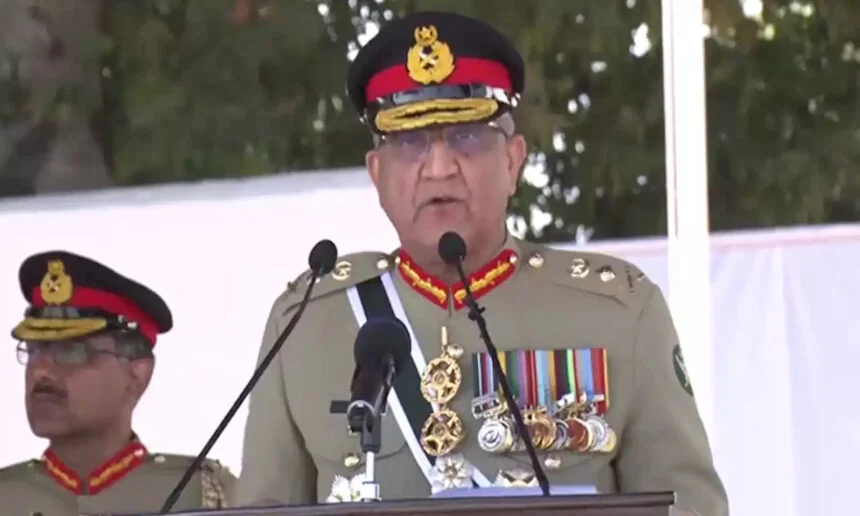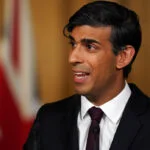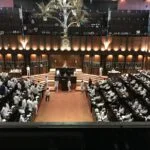Gen. Bajwa announced his impending retirement during a speech at the National Security Workshop at National Defence University.
Gen. Bajwa announced his resignation at the end of November during a trip to Washington earlier this month.
Gen. Bajwa informed workshop attendees that the army had decided to remain apolitical in light of the current political unrest in the nation. Despite promises from its leadership that it would avoid politics, the army has continued to be accused of interfering in politics in recent months.
In his remarks, Gen. Bajwa also emphasized the importance of “national cohesion and unified response” for safeguarding progress and boosting the national interest.
He reflected on the military’s victories over terrorism. A few months after Gen. Bajwa took over as commander, Operation Raddul Fasaad was started in order to maintain the gains made by earlier counterterrorism operations. Following that, terrorism incidences significantly dropped.
According to the departing chief, establishing the rule of law and the state’s writ is the only way to attain peace and stability.
However, Khyber Pakhtunkhwa is currently experiencing a comeback, and this year, terrorist assaults have claimed the lives of nearly 400 people—mostly security personnel.
After six years of leading the army, Gen. Bajwa will step down by the end of November. He was appointed army chief in 2016 for a three-year term, but after parliament passed legislation governing the terms of service chiefs in response to the Supreme Court’s rulings, his term was prolonged by another three years.
The retirement age for service chiefs was set by law at 64 years old. Gen. Bajwa has the legal right to serve out another term because he is 61 years old provided the government permits it. This prospect has given rise to unending rumors that he might keep the job.
It is anticipated that the selection process for his successor would start before the end of next week. According to a member of the federal cabinet, influential parts of the administration have advised the prime minister to speed up the appointment procedure because they believe that discontent in the nation was caused by the impending change in command.
According to the procedure, General Headquarters would send a panel of the five senior-most lieutenant generals to Prime Minister Shehbaz Sharif for the selection of the new army head via the defense ministry.
The president would nominate the service heads on the prime minister’s suggestion, as stated in Article 243(3) of the Constitution.
On November 27, in addition to the COAS being chosen, the job of chairman of the Joint Chiefs of Staff Committee will also become vacant. However, because the history of this position obscures the political landscape, all eyes are on who will be the next army chief.
The most senior generals who might be considered for promotion are Lt Gen Asim Munir, who is presently the Quarter Master General, Lt Gen Sahir Shamshad Mirza, who is the Commander of the 10 Corps, Lt Gen Azhar Abbas, who is the Chief of the General Staff, Lt Gen Nauman Mehmood, who is the President of the NDU, Lt Gen Faiz Hamid, who is the Commander of the Bahawalpur Corps, and L (Commander, Gujranwala Corps).












